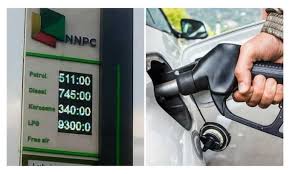
$10bn debt: CBN defaults on payment to banks, dollar nears N1,000
Over two weeks after the Central Bank of Nigeria promised to clear over $10bn foreign exchange debts owed Deposit Money Bank, the apex bank has yet to do so. This came as the naira was sold between 990/$ and 995/$ by Bureau De Change operators on Friday and Saturday in Lagos, Abuja and Kano.
On the Investor & Exporter forex window, the naira however appreciated to 747.76/$ on Friday, from 772.98/$ on Thursday.
The immediate past acting CBN Governor, Folashodun Shonubi, on September 6, 2023, said the apex bank had concluded negotiation on dollar debts with commercial banks, disclosing that all forex exchange backlogs would be cleared within one to two weeks.
Deposit money banks have assisted the apex bank to clear the majority of its overdue FX forward contracts at maturity.
As such, he said the CBN had reached an agreement to reimburse the lenders within one or two weeks following extensive debt restructuring talks that lasted over a long period of time.
“In response to questions about the backlogs, the banks have been working with the CBN on various structures to clear them. So, what happens is that at maturity, they make the foreign exchange available to those that need it.
“We are discussing with them so we can structure their own. So, we are working towards clearing them in the next one or two weeks. It is something we have been discussing for a while,” Shonubi had told audience at a forum in Lagos
However, multiple top bank executives told The PUNCH on Sunday that almost three weeks after the promise, the apex bank had yet to make good its promise.
According to them, development had put banks in a very tight FX liquidity position, a situation that has made many lenders to temporarily suspend several FX transactions including school fees and Personal Travel Allowance applications.
Findings show the situation has also worsened dollar liquidity at the parallel market as bank customers shift to the black market to meet their forex needs.
“The FX backlogs have not cleared. The promise has not been made good. We are hoping that the new CBN governor will begin a discussion with banks on it or clear them immediately,” the executive director of a commercial bank told one of correspondents on condition of anonymity.
Also, a top official of Tier-2 bank privy to the development, said, “We have yet to see the FX backlogs cleared including the overdue forward contract obligations. We don’t know when this will be cleared. Unfortunately, the situation has worsened our FX position, making many banks to put some FX demands of their customers on hold.”
A report by JPMorgan, a United States-based lender put the total amount of forward contract debt owed by the CBN at $6.84bn. The CBN has however dismissed the report.
Reports had put forward contracts and dollar swap deals between the apex bank and banks at over $10bn.
The CBN could not be reached for immediate comments as of Sunday.
Naira slumps
Pressure mounted on the naira on Friday, at the black market with BDC operators in Lagos, Abuja and Kano lamenting dollar scarcity,
An Abuja-based BDC operator, Sanusi Ibrahim, said, “We sold the naira for as high as 1,000/$ on Saturday. On Friday, we were buying and selling for 980/$ and 995/$.”
Another BDC operator, who is based in Ikeja, Yusuf Kareem, said, the naira was sold for 995/$. It is scarce; I cannot sell below that because I also bought it expensive. Only those who have it can sell.”
At the parallel market, Pound Sterling was bought and sold for £1,235/ and £1,250/, while Euro was bought and sold for 1,025/€ and 1,028/€, according to operators in the segment of the market.
On the Investor & Exporter forex window, the naira however appreciated to 747.76/$ at the close of Friday, from 772.98/$ on Thursday.
Manufacturers fear closure
Meanwhile, operators in the economy have feared further rise in cost of goods and services, and more shutdowns of their operations over the worsening naira value.
They called for urgent intervention in the sector to prevent more hardship on Nigerians.
The National Vice Chairman of the Nigerian Association of Small-Scale Industrialists, Segun Kuti-George, said higher prices would be the unavoidable consequence of the current exchange rate.
He expressed dismay that the floating of the naira which was supposed to curb speculation of currency speculation, had consequently escalated the activities of speculators.
According to Kuti-George, unless the government moves swiftly to stem the tide of the naira depreciation especially at the parallel market where more customers access the FX, more factories would be forced to shut down.
“It is ironic that what works in other places don’t work in Nigeria. The cost of production is rising, because we still import a large part of our input, especially equipment. Most of the raw materials that we use are imported.





